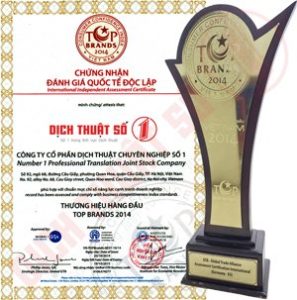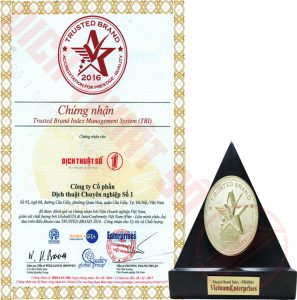Learning Korean in class is sometimes not the right choice for everyone. So how to conquer Korean effectively at home?
The following article by No.1 Translation will share methods self study Korean effective, helping you confidently communicate and explore the world of Korean culture.
>>> See more: Effective Korean Learning Methods for Beginners
How to learn Korean by yourself with a fast track
Learn Korean Alphabet
The Korean alphabet, also known as Hangul, was created by King Sejong the Great in 1443. It is a complete, simple, and scientific writing system that helped popularize writing among the Korean people.
Hangul consists of 24 basic letters, divided into:
- 10 basic vowels: ㅏ, ㅑ, ㅓ, ㅕ, ㅗ, ㅛ, ㅜ, ㅠ, ㅡ, ㅣ(Note that vowels consist of vertical letters).
- 14 basic consonants: ㄱ, ㄴ, ㄷ, ㄹ, ㅁ,ㅂ,ㅅ,ㅇ,ㅈ,ㅊ,ㅋ,ㅌ,ㅍ,ㅎ.
In addition, the Korean alphabet also has:
- 11 double vowels: 애, 얘, 에, 예, 와, 왜, 외, 워, 웨, 위, 의.
- 5 double consonants: ㄲ,ㄸ,ㅃ,ㅆ,ㅉ.
The quick way to learn the Korean alphabet is to learn them in groups.
>>> See more: Korean Alphabet Translated To Vietnamese Correctly

Practice Korean pronunciation and writing
Correct pronunciation is the key to good listening and communication. Focus on practicing vowels and consonants, and use notes to memorize the letter shapes. Then practice each letter until you master it, paying special attention to words with the “ㄹ” patchim and double patchim. To check your accuracy, use a mirror to observe your mouth shape as you pronounce the words.
In addition, correct spelling is extremely important in Korean, especially when you take a writing test like TOPIK. Each word or phrase in Korean is separated by a space. If you write incorrectly, the sentence will be difficult to understand and cannot convey the meaning. To practice your writing skills, you can use grid paper. This way of writing helps you easily align the letters, ensuring reasonable spacing between letters and words, thereby creating beautiful and easy-to-read handwriting.
Supplement basic vocabulary and grammar
Vocabulary is the foundation of communication. To learn Korean effectively, prioritize learning vocabulary based on topics you love or related to daily life. For example, if you like cooking, learn vocabulary about the kitchen. This way of learning creates excitement and helps you remember words easier. Set a goal to learn vocabulary every day and review regularly in cycles (3 days, 1 week, 1 month) to remember longer.
After mastering some vocabulary, you should improve your Korean grammar structures. Memorize simple daily communication sentence structures such as affirmative sentences, questions, etc. and how to conjugate verbs in sentences. Once you have mastered the theory, practice making sentences from simple to compound sentences and practice speaking a lot.
>>> See more:
- 100+ Korean Vocabulary About Construction Materials
- 100+ Most Common Korean Vocabulary About Economics and Commerce
Effective documents for self-studying Korean at home
Korean self-study books
Currently on the market there are many books that help you learn Korean quickly and effectively such as:
- Self-study Korean for beginners: The book specifically presents problems that Korean learners often encounter, from which it provides detailed topic content with specific examples.
- 15 minutes of self-study Korean every day: The book is compiled with common Korean communication sentences based on grammar structures that are widely used by Koreans in daily life. This book is suitable for busy people who only need to spend 15 minutes a day to self-study.
- Korean writing practice for beginners: This self-study Korean book has instructions on how to write Korean according to the rules, thick printed pages, and rich and attractive content.
There are also many other popular self-study Korean books such as: Basic Korean for beginners (Dan Tri Publishing House), 3000 Korean vocabulary words by topic (Hong Duc Publishing House), Common Korean grammar - Elementary (Hong Duc Publishing House),...

Korean self-study course for everyone
When you want to learn Korean, finding yourself a set of Korean self-study textbook for beginners is essential. Below are quality textbooks that many people seek to read:
- Seoul Korean Language Course
- Sejong Textbook
- Comprehensive Korean course for beginners
- Yonsei Korean Textbook
- Korean self-study course for everyone.
Top free websites/apps to help you learn Korean by yourself
You can completely learn Korean by yourself through some free Korean self-study software such as:
- LingoDeer: Korean learning app with rich vocabulary and diverse topics.
- Eggbun: Learn Korean Fun: Korean learning app has an easy-to-use interface that comes with features that support effective language learning.
- Learn Korean Every Day – Awabe: Awabe App helps you learn Korean by yourself every day with 4 levels from beginner to intermediate.
- EASY KOREAN: The website easy-korean.com helps you learn Korean online for free easily.
- Korean Class 101: This is a Korean learning website for beginners, helping you learn Korean online through classes, thereby practicing reflexes in communication and behavior.
>>> See more:
- Top 6 Accurate Korean Voice Translation Apps
- Top 7 Most Accurate and Free Korean Translation Websites

Self-study Korean through watching movies and listening to music
Learning Korean through movies and music is a fun and effective way to improve your language skills while having fun. Here are some tips to help you get the most out of this method:
- Choose movies and music that match your language level and interests.
- Slow down the playback speed of movies or music so you can hear the dialogue clearly and understand the content.
- Write down new vocabulary you come across in movies or music, along with their meanings and usages.
- Some subtitling services may translate korean to vietnamese, helping you better understand the content of movies or music.
- Try saying or rewriting a character's lines from a movie or a line from a song.
Community sharing experiences of self-studying Korean at home
To create motivation and learn effectively, join Korean learning groups on social networks. You can search for groups with keywords such as "Self-study Korean", "Learn Korean together", "How to self-study Korean?", "How to self-study Korean at home", etc.
The group is a great place for you to ask questions, share knowledge, discuss issues in the process of learning Korean, as well as discover more diverse new learning resources.
Notes when self-studying Korean for beginners
Need a specific roadmap to self-study Korean at home
Below is the roadmap for self-studying Korean at home, divided into specific stages and content:
- Phase 1 (Foundation about 2-3 months): Learn Hangul alphabet, practice pronunciation, learn basic grammar, learn basic vocabulary, practice listening.
- Phase 2 (Advanced about 3-4 months): Learn advanced grammar, expand vocabulary, practice advanced listening, practice simple communication, practice reading comprehension of simple articles and short stories.
- Phase 3 (Completion in about 3-4 months): Review what you have learned, do grammar and vocabulary exercises to consolidate, practice listening and speaking in depth, write short essays and letters, join Korean clubs, find language friends to practice communication.
Learn Korean fully and evenly all 4 skills
Self-studying Korean can lead to imbalanced learning, especially speaking skills. To learn effectively, you need to have a regular practice plan for all four skills: listening, speaking, reading, and writing.
- Listening and speaking practice: Take advantage of Korean songs, movies, or lectures to improve your listening comprehension and get used to the language's intonation and reflexes.
- Practice reading: Read newspapers, information, paragraphs, and sentences in Korean. Try using Korea's Naver search engine to access a variety of information sources.
- Writing practice: Write a diary or short paragraph in Korean to practice grammar and vocabulary.
- Review: Establish a regular review schedule to consolidate knowledge and maintain progress.
>>> See more:
- 500+ Basic Korean Daily Communication Sentences
- 100 Most Common Korean Sentences for Daily Communication
Be persistent and patient when self-studying
Remember that “Rome wasn’t built in a day.” Therefore, learning Korean is a process that requires perseverance and patience. Set clear learning goals, such as achieving TOPIK level, basic communication, etc. Then, make a study plan, find materials to self-study Korean at home, and reward yourself when you achieve small goals. Don’t compare yourself to others, find interesting ways to self-study Korean and focus on your own learning progress.

Self-study Korean is a challenging but also very rewarding journey. With the current economic development cooperation between Korea and Vietnam, the need Korean translation is increasing. Learning Korean not only opens up many opportunities for you to study and work in the Korean environment but also helps you become a reputable translator.
Number 1 Translation provides professional services, ensuring high quality and accuracy. Please contact with us when you need editing Korean translation professional and reliable.








